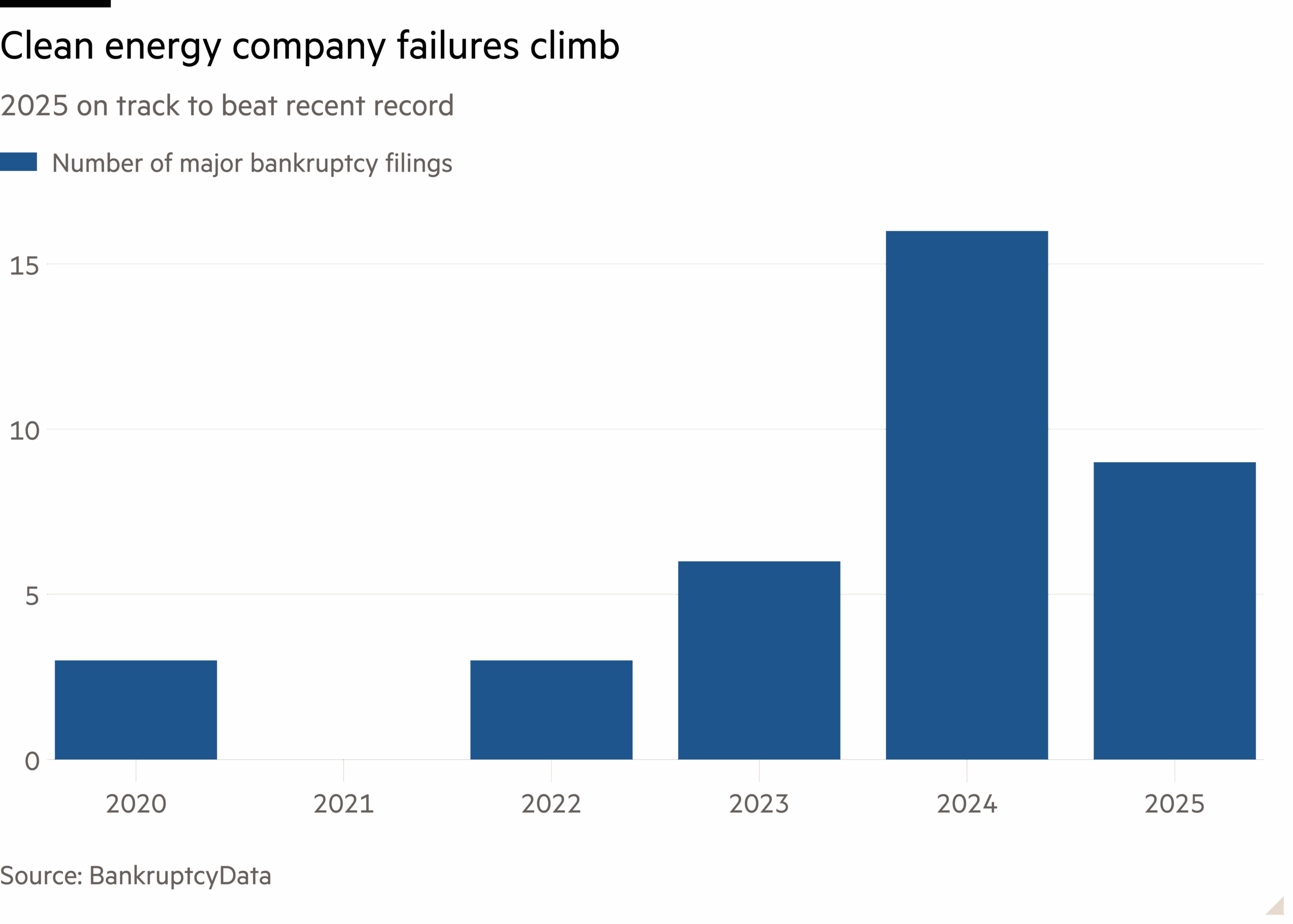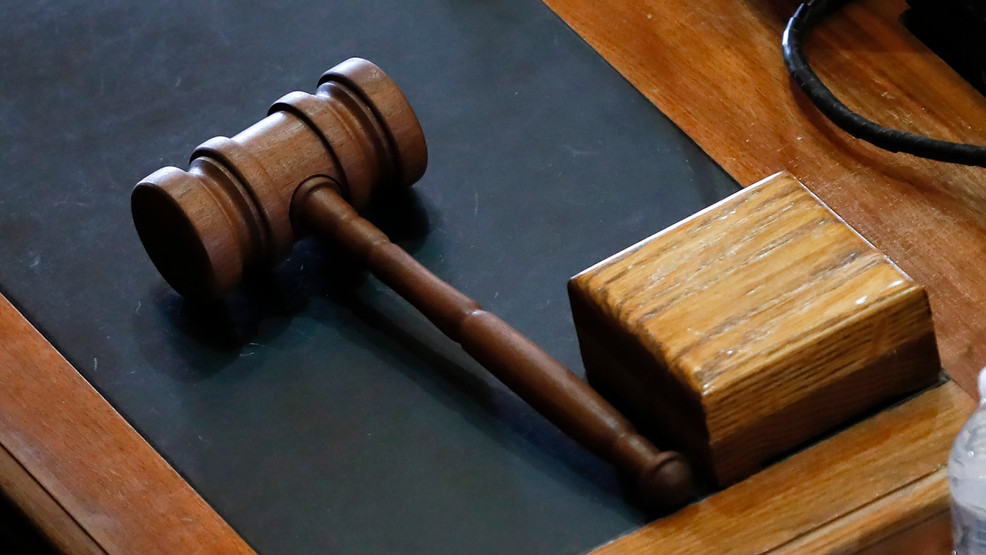
Stay informed with free updates
Simply sign up to the Renewable energy myFT Digest — delivered directly to your inbox.
The US clean energy sector is facing a wave of collapses as Congress weighs a spending bill that would gut clean energy tax credits that have kept the industry afloat.
Two major companies, residential solar provider Sunnova and financing firm Mosaic, filed for bankruptcy this month, with Sunnova citing “uncertainty over the nation’s commitment” to solar power as a factor in its failure. The two companies are among the largest casualties in the sector since Donald Trump took office.
Reality is sinking in for an industry that hoped the robust presence of clean energy projects in Republican areas would save it from cuts. But in the months since Republicans retook Congress and the White House, they have moved swiftly to dismantle Biden-era investment in renewable energy sources.
Bankruptcies could also present a challenge for a Trump administration that says it will prioritise lowering energy costs and supporting job creation.
“It’s not final but it looks very negative,” said Carter Atlamazoglou, managing director for FTI Consulting who focuses on renewable energy, referring to the Senate’s latest draft of the tax bill. “You’re dealing with a lot of major uncertainty, which makes anyone considering residential solar — from homeowners to financiers — basically waiting to see what is going to happen here.”
Meanwhile, shares of solar companies have plummeted in recent days as the Senate version of the tax bill has echoed the House’s hard line on renewables, dashing investor hopes for a more moderate stance. Several solar stocks have suffered double-digit declines.
Renewable energy companies were already struggling to navigate high interest rates and the higher cost of capital over the past year, and the recent draft legislation has only exacerbated the sector’s financial strain.
“Firms are under liquidity pressure and we’re seeing real distress in the industry,” Atlamazoglou added. “Things are coming to a head.”
There have been nine big clean energy bankruptcies this year, with corporate failures on track to outpace the 16 that filed in the sector last year, according to BankruptcyData.

Solar business leaders had hoped that after weeks of lobbying, the upper house would water down some of the sweeping cuts the House of Representatives made to incentives for homeowners and residential solar companies in the so-called “big, beautiful bill”.
While Senators on Monday pushed back the timeline for some tax credits to be scrapped, business leaders say the changes will still continue the trend of mass liquidations and lay-offs.
“There’s going to be a 50 to 60 per cent downturn in demand. That will wreak havoc on a lot of these solar companies,” said Ara Agopian, chief executive of Solar Insure.
“Many of them will shut their doors as they can’t stay in business without the tax credit.”
Despite being disappointed by the Senate’s bill text, industry leaders are hoping to stave off bankruptcies by pointing to the economic impact the cuts would cause.
“We are in a fight for our lives,” said Abigail Ross Hopper, CEO of the Solar Energy Industries Association at a rally in Washington on Tuesday. “The bill does not achieve American energy dominance . . . In the residential solar industry alone, 1,500 small businesses and over 250,000 jobs are at risk.”
“We’re looking at a six-month cliff and thousands of businesses having to completely remake their business models in the space of mere months,” said Dan Conant, chief executive of Solar Holler, a West Virginia-based installation company. “It’s just impossible to do.”
Analysts said a market retreat from solar was likely to continue after investors were caught off guard by the Senate’s decision to echo the House’s hard line.

Since the text’s release, shares of Sunrun, a solar leasing company, lost 36 per cent; Enphase Energy, which makes technology for solar power systems, batteries and electric vehicles, fell 21 per cent; while shares in First Solar, a panel manufacturer, fell 19 per cent. SolarEdge, a manufacturer of technologies that boost panel performance, lost 30 per cent.
“There was a widespread street expectation for the policy to be eased in the senate draft,” said Julien Dumoulin-Smith, a clean energy analyst at Jefferies.
“If [residential solar] has been excluded here, the odds of it being reintroduced in subsequent iterations certainly diminishes. That’s what you’re seeing reflected in such a sharp moves.”
Climate Capital

Where climate change meets business, markets and politics.Explore the FT’s coverage here.
Are you curious about the FT’s environmental sustainability commitments?Find out more about our science-based targets here



